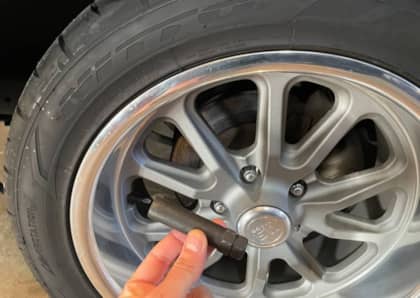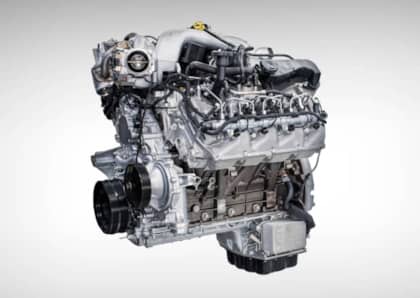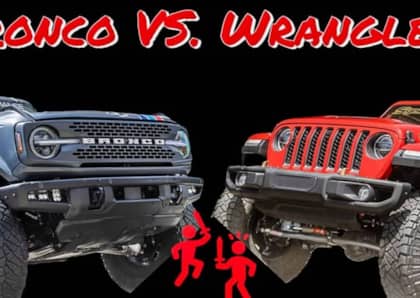Lug Nuts: Which One Is Right For You
If you’ve ever swapped out your stock wheels for aftermarket wheels, you’d know that there is more than one type of lug nut. Maybe you even found out the hard way when realizing your old lug nuts don't fit on your new wheels. Lug nuts vary in size, taper and thread pitch. Depending on the wheel or purpose your lug nut type may vary—so how do you know which ones to use for your application?

First, let's get to know the different type of lugs nuts.
Hex Nut
The hex nut is the most common type of lug nut. It features a hex shaped head that threads onto the wheel stud to secure the wheel in place. Wheel studs are the threaded studs that stick out of the wheel hub (and if you're a Subaru owner, you've probably broken many wheel studs). Hex nuts come in different styles and vary with the shape required to sit on the wheel properly.
Hex nuts are typically made of steel and chrome plated but you can also find them in lightweight materials such as aluminum (and anodized in different colors) or titanium.

Spherical Seat
Also known as a ball seat lug. These have a hex shaped head and a round/dome shaped end for the part of the lug that makes contact with the wheel.
Where would you use these?
On wheels with dome shaped lug holes, commonly found on European cars that do not use a lug bolt set up. More on lug bolts later.

Conical Seat
The conical seat is a very common type of lug nut. You can differentiate this style by their cone shaped lug seats which feature a 60 degree taper that self-centers the lug onto the wheel when tightened down. Unlike the spherical seat, conical seats differ with their angled shape. They are often referred to as acorn lug nuts because of their similar appearance.
Where would you use these?
For aftermarket wheels with 60 degree tapered lug holes. Typically made of steel but could be found made of aluminum or even titanium for racing applications. These are also the type of lug nuts currently used in NASCAR (until NASCAR moves to a single lug nut in 2021) and many other forms of motorsports.

Mag Type with Flat Washer
The mag type has a unique look which features a long thread and a flat washer seat which allows them to sit flush against the wheel. Unlike the spherical or conical seats, mag type sits flat on the face of a wheel.
Where would you use these?
These are likely the type of lug nuts your car came with. The mag type with flat seat washer can be found on many OEM wheel applications with a chrome plated finish.

Tuner Nuts
A tuner style lug nut features a conical seat with a 60 degree taper but a major differentiating feature is the requirement of a special key/tool to install and remove the nut. Tuner nuts are often much smaller in diameter than other styles of lug nuts. Depending on design, the tuner nut can make a wheel harder to steal by requiring a special key to use, utilize an increased amount of torque when tightening and possibly minimize the chances of stripping a lug nut.
Tuner Nut with Hex Socket

A tuner nut with hex socket features a smooth outside that can not be loosened or tightened with a typical socket. Instead, it requires a special hex socket that fits inside of the nut to install or remove.
Where would you use these?
Although less common these days than the spline drive, the tuner with hex nut would be used in aftermarket wheel applications and for added security.
Spline Drive
This type features a conical seat with spline grooves along the length of the bolt and require a special tool. Where the key on the tuner nut with hex socket inserts on the inside, the spline drive key fits around the outside grooves of the nut. The requirement of a unique tool reduces the risk of stripping the lug nut and reduces the risk of theft. The Gorilla lug nuts is one of the most popular brands of spline drive lug nuts.
Where would you use these?
Like the tuner nut with hex socket, these are mainly found on aftermarket wheel applications and for added security. Their smaller diameter typically makes them lighter than other types of lug nuts which makes them a good choice for weight conscious track goers.

Open ended
Open-ended lug nuts are threaded the length of the nut and do not have a closed end. This allows you to run the lug nut on longer wheel studs where you may be running a wheel spacer, without worrying about running out of thread on the wheel studs. The longer thread also allows for more contact with the wheel stud.
Where would you use these?
Commonly found in racing applications or when wheel spacers and extended wheel studs are used.

Lug Bolt
Many European cars use something called a lug bolt. A lug bolt features a threaded stem attached to a tapered head. Unlike a lug nut, where the bolt threads onto the wheel stud that is fixed onto a hub, a lug bolt threads onto the hub. A lug bolt, bolts the wheel and brake rotor directly onto the hub. This makes changing the brake rotor easy but an added hassle of lining up the wheel and brake rotor when mounting wheels/tires.

The seats of a lug bolt very just like a lug nut and can be found with a hex head or tuner style with a spherical or conical seat.
Where would you use these?
These are commonly found on European brands such as BMW, VW, Audi and Mini to name a few. Many owners who tend to switch wheels often usually end up replacing lug bolts with aftermarket wheel stud kits for their ease of use.

Once you know what type of lug nut you need, always be sure to have the correct thread pitch and wheel torque specs. Otherwise the nut may not secure the wheel onto the hub properly. That can lead to cross treaded wheel studs, broken wheel studs or even your wheel falling off the car!

Now that you know what kind of lug nut you need, find out how to torque them down properly.











